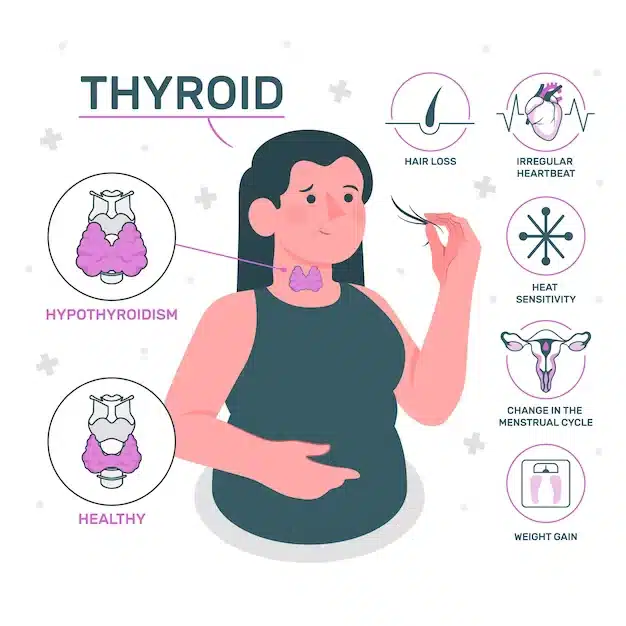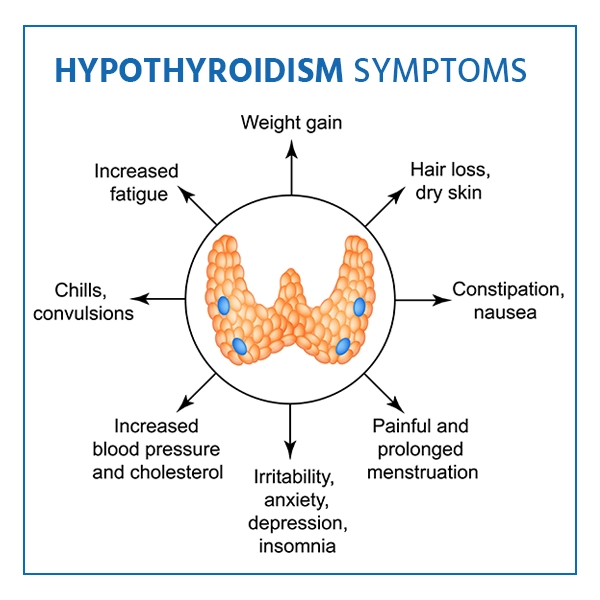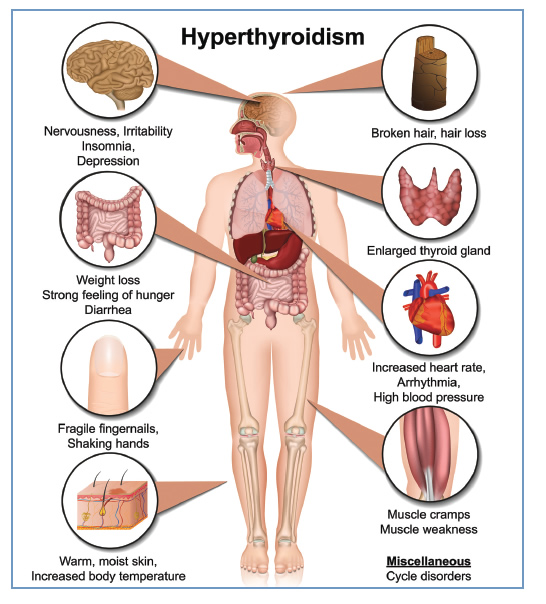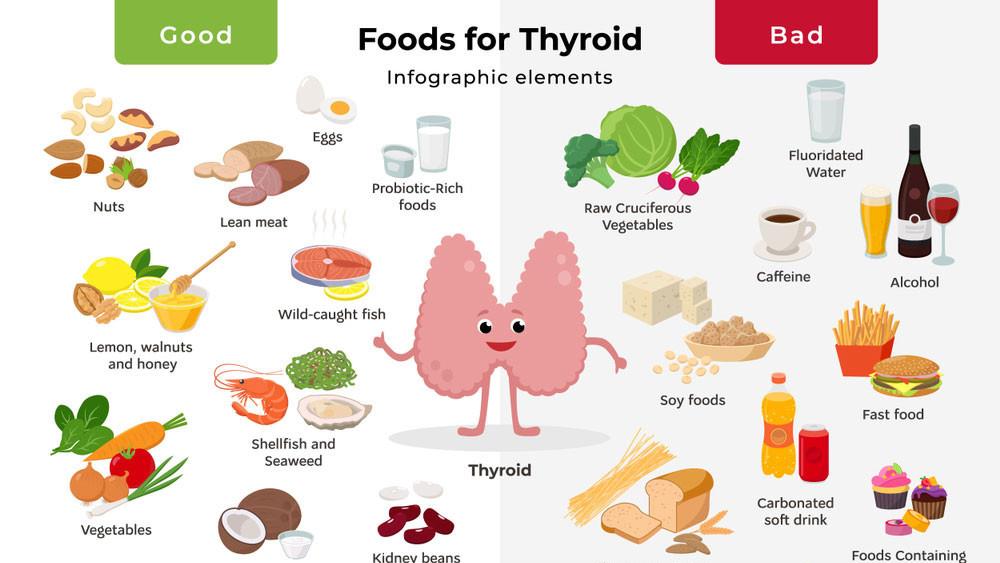Introduction to Thyroid Health
Understanding the thyroid gland’s role in regulating metabolism and overall health is essential for proactive wellness management. Thyroid health is a crucial aspect of overall well-being, yet it’s often overlooked until symptoms manifest. Understanding the thyroid gland and its disorders is essential for proactively managing one’s health. In this comprehensive guide, we’ll delve into the intricacies of thyroid health, from its functions to practical strategies for prevention and control. Mastering Thyroid Health
Understanding Thyroid Disorders

Thyroid disorders, including hypothyroidism and hyperthyroidism, impact millions worldwide, necessitating awareness and proactive management. Thyroid disorders primarily encompass hypothyroidism and hyperthyroidism. Hypothyroidism occurs when the thyroid gland produces insufficient hormones, leading to symptoms such as fatigue, weight gain, and cold intolerance. On the other hand, hyperthyroidism results from an overactive thyroid gland, causing symptoms like weight loss, rapid heartbeat, and anxiety.
Hypothyroidism: Symptoms and Treatment

Hypothyroidism, characterized by an underactive thyroid gland, manifests in symptoms like fatigue, weight gain, and depression. Levothyroxine, a synthetic thyroid hormone, is the standard treatment. Hypothyroidism, also known as an underactive thyroid, is a common thyroid disorder characterized by reduced thyroid hormone production. This condition can be caused by autoimmune diseases, thyroid surgery, or certain medications. Symptoms of hypothyroidism include fatigue, weight gain, constipation, dry skin, and depression.
Hyperthyroidism: Causes and Management

Hyperthyroidism, the opposite of hypothyroidism, leads to symptoms such as weight loss, rapid heartbeat, and anxiety. Treatment options include medication, radioactive iodine therapy, and thyroidectomy. Hyperthyroidism, or an overactive thyroid, occurs when the thyroid gland produces excess hormones. Graves’ disease, an autoimmune disorder, is a common cause of hyperthyroidism. Symptoms include weight loss, rapid heartbeat, anxiety, irritability, and sweating.
Importance of Controlling Thyroid
Maintaining optimal thyroid function is crucial for metabolic health, energy levels, and overall well-being. Proactive management can prevent complications and enhance quality of life. Maintaining optimal thyroid function is crucial for overall health and well-being. Proper thyroid hormone levels regulate metabolism, energy production, and organ function. By controlling thyroid levels, individuals can prevent complications such as heart disease, infertility, and mental health issues.
Lifestyle Changes for Thyroid Health
Dietary adjustments, incorporating iodine-rich foods and supplements, along with regular exercise, play pivotal roles in supporting thyroid function and overall health.
Stress Management for Thyroid Health
Chronic stress adversely affects thyroid function. Stress reduction techniques like meditation, yoga, and deep breathing exercises can mitigate this impact, promoting thyroid health.
Natural Remedies for Thyroid Control
Certain herbs and supplements, like ashwagandha and selenium, have shown promise in supporting thyroid function. Consultation with a healthcare professional is advised before incorporating these remedies.
Medication and Treatment Options
Levothyroxine and antithyroid drugs are common medications for thyroid disorders. Radioactive iodine therapy and thyroidectomy are options for hyperthyroidism. Regular monitoring and adjustment of medication are crucial for optimal management.
Prevention Techniques
:max_bytes(150000):strip_icc()/3233225_color-5c01779fc9e77c00013b198d.png)
Routine thyroid function tests facilitate early detection of abnormalities, enabling timely intervention and management. Avoiding exposure to environmental toxins also supports thyroid health.
Regular Check-ups

Routine thyroid function tests can help detect abnormalities early on, allowing for prompt treatment and management. Regular check-ups with a healthcare professional are essential for monitoring thyroid health and addressing any concerns.
Avoiding Toxins

Exposure to environmental toxins like pesticides, pollutants, and heavy metals can disrupt thyroid function. Minimizing exposure to these toxins by choosing organic foods, using natural cleaning products, and filtering drinking water can help protect thyroid health.
Support Systems for Thyroid Patients
Support groups and healthcare professionals provide valuable resources and guidance for individuals managing thyroid disorders, fostering a sense of community and empowerment. Joining support groups or seeking guidance from healthcare professionals can provide valuable support and resources for individuals managing thyroid disorders. Connecting with others who understand the challenges of living with a thyroid condition can offer encouragement, advice, and camaraderie.
Tips for Staying Healthy with a Thyroid Condition
Maintaining a healthy lifestyle, prioritizing self-care, and adhering to medication regimens are vital for managing thyroid conditions effectively. Proper sleep, stress management, and healthy habits further contribute to overall well-being. Maintaining a healthy lifestyle, adhering to medication regimens, and prioritizing self-care are essential for managing thyroid conditions effectively. Getting adequate sleep, managing stress, and avoiding tobacco and excessive alcohol consumption can also contribute to overall well-being.
Myths and Facts about Thyroid Health

Dispelling misconceptions surrounding thyroid health, such as the belief that thyroid disorders are solely genetic, aids in informed decision-making and promotes proactive management. Dispelling common myths surrounding thyroid health can help individuals make informed decisions about their care and treatment options. Some myths include the belief that thyroid disorders are solely genetic or that dietary supplements can cure thyroid conditions.
Impact of Thyroid Health on Overall Well-being
Optimizing thyroid health enhances energy levels, mood stability, and quality of life, underscoring the importance of proactive management and support. Optimizing thyroid health can have a profound impact on overall physical and mental well-being. By managing thyroid disorders effectively, individuals can improve energy levels, mood stability, and quality of life.
Conclusion
Mastering thyroid health entails understanding thyroid disorders, implementing lifestyle modifications, exploring treatment options, and seeking support when necessary. By adopting a holistic approach to thyroid care, individuals can optimize their health and well-being for the long term.
FAQs
- Can thyroid disorders be cured completely?
- While thyroid disorders can be managed effectively with medication and lifestyle changes, they may not be cured entirely.
- Are thyroid disorders hereditary?
- Yes, genetics can play a role in the development of thyroid disorders, but environmental factors also contribute.
- Can I still exercise with a thyroid condition?
- Yes, exercise is beneficial for thyroid health, but it’s essential to consult with a healthcare professional to determine the appropriate level of activity.
- Is there a specific diet for thyroid health?
- While there’s no one-size-fits-all diet for thyroid health, incorporating nutrient-rich foods and avoiding processed foods can support thyroid function.
- What should I do if I suspect I have a thyroid problem?
- If you experience symptoms of thyroid dysfunction, such as fatigue or unexplained weight changes, consult with a healthcare professional for evaluation and diagnosis.



Pingback: Blood Sugar Diabetes: Understanding, Managing, and Thriving - Elite Element